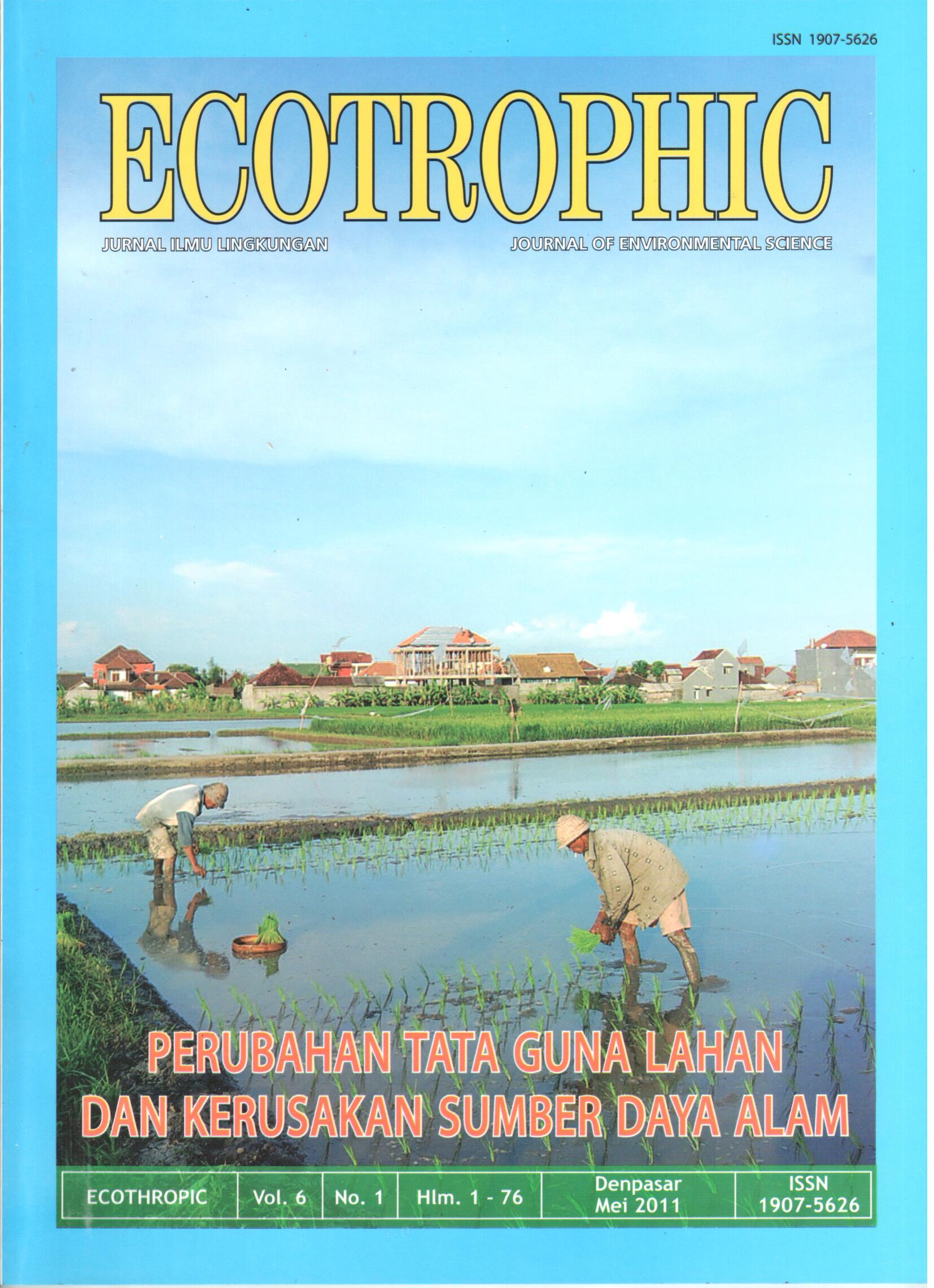PENGETAHUAN, SIKAP DAN PERILAKU WARGA SEKOLAH MENENGAH ATAS (SMA) NEGERI DALAM PENGELOLAAN LINGKUNGAN DI KECAMATAN DENPASAR SELATAN KOTA DENPASAR
Abstract
In responding to the policy of The Minister of Environment, The Minister of Education to encourage every school to develop a curriculum based on environment issues as well to develop active participation from everyone involve in the school environment with the aim of to create awareness and willingness in relation to environmental issues. The purpose of this research as follow: to determine the level and the difference in knowledge, attitudes, and behaviors among SMAN that do not implement environment-based curriculum with an environmentalbased curriculum in environmental management in the District of South Denpasar Denpasar City. This research was done through the method of survey with participants citizens SMA. The sample were involving 594 Senior High Students by implementing Proposional Stratified Random Sampling. The sample taken from participants who are receiving education based on a environment curriculum approach which were 208 in total. The sample taken from participants who are not receiving education based on environment curriculum approach were 384 in total. Data was collected by way of questionnaires using Likert Scale with high level proven validity and reliability. Data were analysed using descriptive and comparison methods. The result of this research is shown as followed: 1) The level of knowledge regarding environment issues is higher for those participants who are educated based on environment curriculum approach as compare to those students who have not been influenced by the same curriculum. 2) attitudes and behaviors of citizens in environmental management SMAN not apply the environment- based curriculum tends to be lower (less positive) than citizens who apply based curriculum SMAN environment, 3) There are very significant differences in knowledge, attitude, and behaviour between participants who are educated based on environment curriculum approach as compare to those participants who are not experiencing the same approach in their education. Positive influence and higher awareness of environmental issues are prevalent in those participants who are educated based on environment curriculum.


